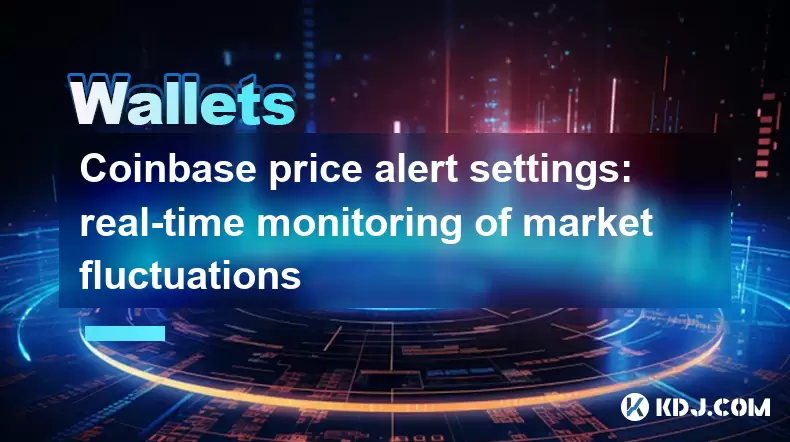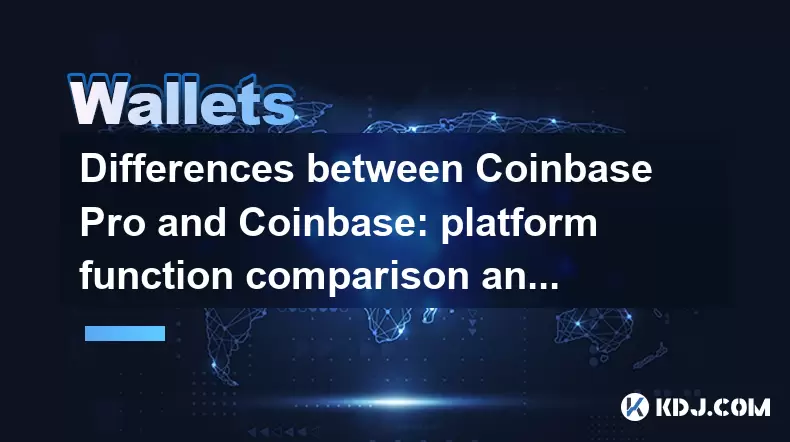-
 Bitcoin
Bitcoin $108,165.4587
0.78% -
 Ethereum
Ethereum $2,456.3517
1.15% -
 Tether USDt
Tether USDt $1.0003
0.00% -
 XRP
XRP $2.1934
0.05% -
 BNB
BNB $650.0935
0.52% -
 Solana
Solana $151.3905
2.69% -
 USDC
USDC $0.9998
0.00% -
 TRON
TRON $0.2751
-0.32% -
 Dogecoin
Dogecoin $0.1640
0.87% -
 Cardano
Cardano $0.5631
0.57% -
 Hyperliquid
Hyperliquid $38.7115
4.69% -
 Bitcoin Cash
Bitcoin Cash $493.1868
-0.39% -
 Sui
Sui $2.8217
3.61% -
 Chainlink
Chainlink $13.3994
2.08% -
 UNUS SED LEO
UNUS SED LEO $9.1632
0.94% -
 Avalanche
Avalanche $18.0318
1.97% -
 Stellar
Stellar $0.2388
0.35% -
 Toncoin
Toncoin $2.8763
1.41% -
 Shiba Inu
Shiba Inu $0.0...01160
1.59% -
 Litecoin
Litecoin $86.6393
1.29% -
 Hedera
Hedera $0.1485
0.16% -
 Monero
Monero $315.7948
1.56% -
 Polkadot
Polkadot $3.4240
1.88% -
 Bitget Token
Bitget Token $4.6314
-0.44% -
 Dai
Dai $0.9998
-0.01% -
 Ethena USDe
Ethena USDe $1.0002
-0.01% -
 Uniswap
Uniswap $7.2110
2.59% -
 Aave
Aave $270.6087
6.07% -
 Pi
Pi $0.5350
0.52% -
 Pepe
Pepe $0.0...09545
1.26%
Is Bitcoin wallet address anonymous?
Bitcoin wallet addresses are pseudonymous, not anonymous; while transactions are public, linking addresses to individuals is possible via blockchain analysis, compromising privacy despite using multiple addresses or mixing services.
Mar 12, 2025 at 11:40 am

Key Points:
- Bitcoin wallet addresses are pseudonymous, not anonymous. They offer a degree of privacy, but transactions are publicly recorded on the blockchain.
- Linking multiple addresses to a single individual is possible through various methods, compromising privacy.
- Techniques like using multiple addresses, mixing services, and privacy-focused coins can enhance privacy but don't guarantee complete anonymity.
- Regulatory scrutiny and advancements in blockchain analysis continually challenge the privacy afforded by Bitcoin wallets.
Is Bitcoin Wallet Address Anonymous? A Deep Dive into Privacy on the Blockchain
The question of Bitcoin wallet address anonymity is a complex one, often misunderstood. While Bitcoin transactions are recorded publicly on the blockchain, the connection between a wallet address and a real-world identity isn't inherently revealed. This is often mistakenly interpreted as anonymity. However, it's more accurate to describe Bitcoin wallet addresses as pseudonymous.
A pseudonymous system allows users to operate under an alias, obscuring their true identity. Your Bitcoin wallet address acts as this alias. Each transaction involving this address is recorded on the public blockchain, detailing the amount of Bitcoin sent and received. However, the blockchain itself doesn't reveal the name, location, or other personally identifiable information of the wallet's owner.
The misconception about anonymity stems from the fact that only the wallet address, not the user's identity, is directly visible. However, this privacy is not absolute and can be compromised. Sophisticated blockchain analysis techniques can link multiple addresses to a single individual through various patterns and clues.
Several factors can lead to the identification of a user behind a Bitcoin wallet address. For example, if a user consistently uses the same IP address when interacting with their wallet, or if they accidentally reveal their identity during an online transaction using that wallet, their anonymity is jeopardized. Furthermore, exchanges often require KYC (Know Your Customer) procedures, linking user accounts to their real-world identities. If these users then transfer Bitcoin to their personal wallets, a trail can be established.
To enhance the privacy afforded by a Bitcoin wallet, users often employ various techniques. These strategies, while helpful, don't guarantee complete anonymity.
- Using Multiple Addresses: Creating multiple Bitcoin addresses for different transactions can make it more difficult to track the flow of funds. Each transaction uses a unique address, making it harder to link various transactions together.
- Coin Mixing Services (Tumblers): These services pool together Bitcoin from various users, then redistribute them, effectively obscuring the origin and destination of the coins. However, the trustworthiness and legality of these services vary significantly, and some have been linked to illicit activities.
- Privacy-Focused Coins: Cryptocurrencies like Monero prioritize privacy through features like ring signatures and confidential transactions, offering a higher level of anonymity than Bitcoin.
However, even with these privacy-enhancing techniques, the inherent transparency of the blockchain presents a challenge. Law enforcement agencies and blockchain analytics firms possess advanced tools capable of tracing transactions and uncovering connections between addresses, even if those connections are obfuscated. Moreover, regulations are constantly evolving, and many jurisdictions require exchanges and other Bitcoin service providers to implement robust KYC/AML (Anti-Money Laundering) procedures. These regulations further erode the potential for complete anonymity.
The ongoing development of blockchain analytics technology continuously refines the ability to link wallet addresses to individuals. Advanced techniques can identify patterns in transaction data, network connections, and other metadata, gradually reducing the level of privacy offered by even the most cautious users. Therefore, while a degree of privacy is achievable using Bitcoin, it's crucial to understand that complete anonymity is extremely difficult, if not impossible, to achieve.
Frequently Asked Questions:
Q: Can I truly be anonymous using Bitcoin?
A: No, complete anonymity with Bitcoin is highly improbable. While Bitcoin wallet addresses are pseudonymous, sophisticated analysis can often link them to real-world identities.
Q: What is the difference between a Bitcoin wallet and a Bitcoin address?
A: A Bitcoin wallet is a software program or hardware device that manages your private keys, which are used to access and control your Bitcoin. A Bitcoin address is a unique identifier that you provide to others to receive Bitcoin. Think of it like your bank account number; your wallet is the entire banking system.
Q: Are all Bitcoin transactions traceable?
A: Yes, all Bitcoin transactions are permanently recorded on the public blockchain. This transparency is a core feature of Bitcoin.
Q: Can law enforcement track Bitcoin transactions?
A: Yes, law enforcement agencies and specialized firms have the technology and expertise to trace Bitcoin transactions, even those using privacy-enhancing techniques.
Q: What are the risks of using a Bitcoin wallet without adequate privacy measures?
A: The risks include identity theft, financial loss, and potential legal consequences if involved in illicit activities. Your transactions could be linked back to you, potentially exposing your identity and finances.
Disclaimer:info@kdj.com
The information provided is not trading advice. kdj.com does not assume any responsibility for any investments made based on the information provided in this article. Cryptocurrencies are highly volatile and it is highly recommended that you invest with caution after thorough research!
If you believe that the content used on this website infringes your copyright, please contact us immediately (info@kdj.com) and we will delete it promptly.
- Bitcoin: A Lifeline Against Authoritarian Regimes and a Strategic Asset?
- 2025-06-29 22:30:12
- Elementary, My Dear Collector: Sherlock Holmes 50p Coins on eBay!
- 2025-06-29 22:30:12
- New Coin Disappearing Fast: The Price Impact of Angry Pepe Fork
- 2025-06-29 22:35:12
- Tron vs. Dogecoin: A Cryptocurrency Showdown in 2025
- 2025-06-29 22:50:12
- Ethereum, DeFi, and Cryptocurrency: Navigating the Evolving Landscape
- 2025-06-29 23:07:14
- New Coins, Gaming, and Shiba Inu: What's Hot in the Crypto Space?
- 2025-06-29 23:11:47
Related knowledge

Coinbase price alert settings: real-time monitoring of market fluctuations
Jun 29,2025 at 07:00am
Setting Up Coinbase Price AlertsTo begin real-time monitoring of market fluctuations on Coinbase, users can utilize the built-in price alert feature. This function allows you to receive notifications when a cryptocurrency reaches a specific price point. To access this setting, open the Coinbase app or log in via the web platform. Navigate to the 'Prices...

How to stake cryptocurrencies on Coinbase? Benefits and risks
Jun 27,2025 at 06:36pm
Understanding Cryptocurrency Staking on CoinbaseStaking cryptocurrencies involves locking up digital assets to support the operations of a blockchain network, typically in return for rewards. Coinbase, one of the most popular cryptocurrency exchanges globally, offers staking services for several proof-of-stake (PoS) coins. Users can stake their holdings...

Differences between Coinbase Pro and Coinbase: platform function comparison and analysis
Jun 29,2025 at 08:21am
Overview of Coinbase and Coinbase ProWhen exploring the cryptocurrency trading landscape, users often encounter two platforms under the same parent company: Coinbase and Coinbase Pro. While both are operated by the same organization, they cater to different types of users and offer varying features. Coinbase is primarily designed for beginners and casua...

How to contact Coinbase customer service? Support channels and response times
Jun 28,2025 at 01:29pm
Contacting Coinbase Customer Service: Support Channels and Response TimesIf you're a user of Coinbase, reaching their customer service team may become necessary for various reasons, such as account verification issues, transaction disputes, or technical difficulties. Understanding the different support channels available and what to expect in terms of r...

Coinbase advanced trading function usage tutorial: limit orders and market orders
Jun 28,2025 at 09:07pm
Understanding the Difference Between Limit Orders and Market OrdersWhen using Coinbase's advanced trading features, it is crucial to understand the fundamental difference between limit orders and market orders. A market order executes immediately at the best available price on the market. This type of order ensures that your trade goes through quickly, ...

How to sell Bitcoin on Coinbase? Detailed transaction steps
Jun 29,2025 at 04:22am
Setting Up Your Coinbase Account for TransactionsBefore you can sell Bitcoin on Coinbase, you must ensure your account is fully set up and verified. Coinbase requires identity verification to comply with regulatory standards. This process involves uploading a government-issued ID, confirming your address, and sometimes submitting a selfie holding the ID...

Coinbase price alert settings: real-time monitoring of market fluctuations
Jun 29,2025 at 07:00am
Setting Up Coinbase Price AlertsTo begin real-time monitoring of market fluctuations on Coinbase, users can utilize the built-in price alert feature. This function allows you to receive notifications when a cryptocurrency reaches a specific price point. To access this setting, open the Coinbase app or log in via the web platform. Navigate to the 'Prices...

How to stake cryptocurrencies on Coinbase? Benefits and risks
Jun 27,2025 at 06:36pm
Understanding Cryptocurrency Staking on CoinbaseStaking cryptocurrencies involves locking up digital assets to support the operations of a blockchain network, typically in return for rewards. Coinbase, one of the most popular cryptocurrency exchanges globally, offers staking services for several proof-of-stake (PoS) coins. Users can stake their holdings...

Differences between Coinbase Pro and Coinbase: platform function comparison and analysis
Jun 29,2025 at 08:21am
Overview of Coinbase and Coinbase ProWhen exploring the cryptocurrency trading landscape, users often encounter two platforms under the same parent company: Coinbase and Coinbase Pro. While both are operated by the same organization, they cater to different types of users and offer varying features. Coinbase is primarily designed for beginners and casua...

How to contact Coinbase customer service? Support channels and response times
Jun 28,2025 at 01:29pm
Contacting Coinbase Customer Service: Support Channels and Response TimesIf you're a user of Coinbase, reaching their customer service team may become necessary for various reasons, such as account verification issues, transaction disputes, or technical difficulties. Understanding the different support channels available and what to expect in terms of r...

Coinbase advanced trading function usage tutorial: limit orders and market orders
Jun 28,2025 at 09:07pm
Understanding the Difference Between Limit Orders and Market OrdersWhen using Coinbase's advanced trading features, it is crucial to understand the fundamental difference between limit orders and market orders. A market order executes immediately at the best available price on the market. This type of order ensures that your trade goes through quickly, ...

How to sell Bitcoin on Coinbase? Detailed transaction steps
Jun 29,2025 at 04:22am
Setting Up Your Coinbase Account for TransactionsBefore you can sell Bitcoin on Coinbase, you must ensure your account is fully set up and verified. Coinbase requires identity verification to comply with regulatory standards. This process involves uploading a government-issued ID, confirming your address, and sometimes submitting a selfie holding the ID...
See all articles

























































































